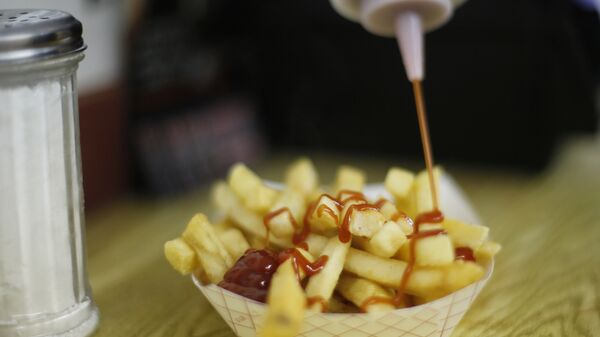The country is known for its national dish of Belgian frites, twice-fried potatoes that are a popular item in bars and restaurants.
In a phone call with CNBC on Monday, Romain Cools, secretary general of potato industry body Belgapom, said that around 750,000 tons of potatoes will not be able to be processed due to the pandemic. There has been a decrease in demand in the frozen potato sector, which comprises 75% of Belgium’s potato processing.
“We’re working with supermarkets to see whether we can launch a campaign asking Belgians to do something for the sector by eating fries - especially frozen fries - twice a week during the coronavirus crisis,” Cools explained. “What we are trying to do is to avoid food waste, because every lost potato is a loss.”
“To be very honest, the effect on potato consumption will probably last for months, and we can only try to find solutions where the solutions are - for us in Belgium, that could be pushing home consumption. We’ve also asked farmers not to plant that many potatoes for the next season because we believe this season will take some extra months away from next year by postponing processing,” Cools added.
Fresh potatoes and snack products make up the remaining 25% of the country’s potato industry, which seems to be doing well during the lockdown, as people are spending more time cooking and snacking, according to Cools.
As for any unprocessed potatoes, they are either being sent to food banks or being exported to Central Europe and Africa, which are currently facing potato shortages. Unprocessed potatoes may also be processed into animal feed or biofuel.
Cools also noted that Belgian officials are worried about a second coronavirus wave.
“We’re also afraid of the second wave of coronavirus - we all are aware of the fact that the outbreak will perhaps never finish. It won’t be over for sure until we have a vaccination program running, and that may not be until the beginning of next year. A lot of people are really optimistic in my country and in the potato sector,” he added. “But to be very honest, as we say in Dutch, ‘I’m holding my heart for the months to come,’” Cools explained.
Before the coronavirus emerged, the Belgian potato sector’s season had been “wonderful.”
“It’s not always the case that I can say the potato season is wonderful because most of the time there are too many or there are not enough potatoes on the market. The industry was doing well, exports were doing well - then in mid-March, the whole thing collapsed. Potatoes dropped from about 135 euros ($146) per ton to 15 euros per ton,” Cools told CNBC.
The drop in demand for potatoes has caused Belgium to ask for support from the European Commission for the first time in the country’s history.
“In 30 years, I’ve never been in contact with the commission to try to find solutions or subsidies for supporting the industry - we’ve never asked for anything. What we’re experiencing now has never happened in the potato sector in Europe. This is a risk nobody could have thought of,” Cools explained.
The European country issued a nationwide lockdown on March 18. According to the latest data by Worldometer, more than 47,000 people have contracted the coronavirus, and more than 7,000 have died as a result.
Belgian Prime Minister Sophie Wilmes on Friday announced that the government would slowly start lifting the lockdown measures. Starting May 4, some businesses will be reopened, but cafes and restaurants will not reopen until June 8 at the earliest.




